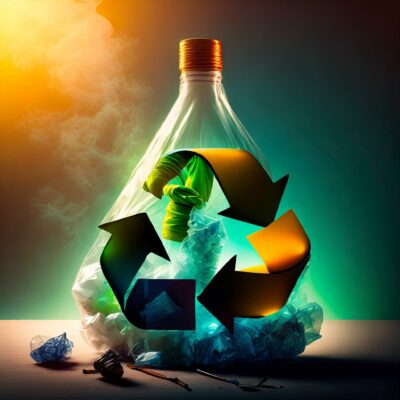Article Contents
Introduction
The world of plastic recycling is on the brink of a revolution. New technologies and processes are emerging, promising to transform how the plastics industry manages waste. This article delves into these innovations, analysing their potential to reshape plastic recycling for a more sustainable future.
Innovative Recycling Technologies
- Chemical Recycling: A game-changer in the recycling industry, chemical recycling breaks down plastics to their molecular level, allowing for the creation of new plastics without degrading quality. This method can process a wide range of plastics that traditional mechanical recycling cannot handle.
- Enzymatic Breakdown: Recent advancements have seen the development of enzymes specifically engineered to break down plastics. This biological approach is not only efficient but also environmentally friendly, offering a novel way to recycle plastics.
- AI and Machine Learning in Sorting: Sorting presents a significant challenge in plastic recycling. Industries are actively deploying AI and machine learning technologies to address this. These technologies aim to enhance the accuracy and efficiency of sorting processes, thereby increasing the rate of correctly recycled plastics.
- Blockchain for Traceability: Blockchain technology is being explored to enhance traceability in the recycling chain. By tracking plastic waste from source to recycled product, blockchain ensures transparency and accountability, encouraging responsible recycling practices.
Challenges and Opportunities
While these technologies hold great promise, challenges such as high implementation costs, regulatory hurdles, and the need for consumer participation still exist. Overcoming these obstacles is essential for these technologies to achieve their full potential in revolutionising plastic recycling.
Conclusion
Indeed, the future of plastic recycling looks exceptionally bright, thanks to a slew of innovative technologies that are paving the way. These advancements lead to more efficient, sustainable, and effective recycling processes. Furthermore, as these technologies mature and successfully overcome existing challenges, they are expected to play a crucial role. Precisely, they promise to manage plastic waste and safeguard our environment.




